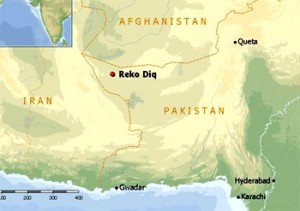
Pakistan is endowed with enormous natural resources and minerals. If explored and utilized properly, Pakistan can become a self-reliant country and get rid of dependency syndrome. Weak economy, technical resource constraints coupled with flawed decisions of the inept governments have brought the country to the present impasse. Instead of relying on our own talent, they provided opportunities to the foreign investors to drain out our resources.
According to independent experts, in Balochistan two Mega Projects i.e. Saindak and Reko Diq have more potential than the combined energy resources of Saudi Arabia and Iran. Reko Diq Copper/Gold Project has an estimated 12.3 million tons of world class copper and 20.9 million ounces of gold worth around $ 125 billion US dollars.
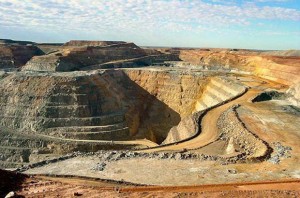
The other day, National Assembly Standing Committee on Science and Technology asked the federal and provincial governments to provide the allocated funds to Thar Coal gasification project to speed up work on the power generation project. The chairman of the committee Dr Abdul Kadir Khanzada said that any delay in Thar Coal and gasification trial and pilot projects will further delay the addition of much needed electricity to country’s economy and industrial sector. The Sindh Coal Authority, project coordinator Engro, Oracle Coalfield UK, PCSIR and coal gasification project also presented the progress of their projects.
Now about Reko Diq project, which has been making headlines for the last one year. This project is being developed by Tethyan Copper Company Limited (joint venture between two mining giants ie Antofagasta of Chili and Barrick Gold of Canada), to produce 0.45 million tons of copper/gold concentrates every year. Terms agreed upon indicated that Pakistan Government has been deceived by these companies.
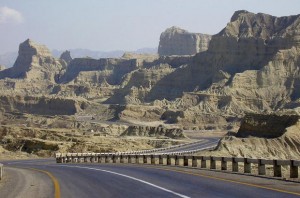
It appears that Balochistan government and federal government are maintaining confidentiality with regard to these projects, which means that there is something fishy about the whole matter. The project has probably been contracted for an estimated value of US $ 25 billion, while actual value of the material, which will be extracted, is about US $ 125 billion. The above mentioned companies plan to take all the ore abroad without processing it locally, as it contains rich contents of copper and gold. For this purpose, these companies intend to develop an exclusive small seaport for shipping the extracted ore (commercial jetty near Gwadar Port about 30 miles towards Karachi).
Dr Samar Mubarakmand has been appearing on TV channels frequently to remind those at the helm that everything should be transparent, and Pakistan should not be robbed of its national wealth by the foreigners with the collusion of the corrupt government functionaries.

Last December ‘The Pakistani Spectator’ wrote on its website: “Quietly, and below the media radar, some 20 top corporate bosses and lobbyists of two of the world’s largest gold mining groups have been meeting President Asif Zardari, Prime Minister Gilani, Governor State Bank and others in Islamabad, pressing them to quickly hand over one of the world’s biggest gold and copper treasures found in Balochistan at Reko Diq, worth over $260 billion, to their companies, and for peanuts.
The Supreme Court and the chief justice of Pakistan can pick up the issue and put a hold on whatever is going on before any binding contracts and deals are signed, which may cause losses of billions of dollars, yes billions of dollars to Pakistan. It has to be mentioned that it was the apex court that stalled the shady deal of selling Pakistan Steel Mills at throwaway prices by Shaukat Aziz government.
On the basis of his interviews in TV channels and print media, a petition was filed in the Supreme Court and Dr. Samar Mubarakmand was called by the court on the next hearing in January 2010 to assist the court regarding natural resources in Balochistan area of Reko Diq.

The company’s counsel had told the court that an amount of $435 million was spent in exploration of natural resources with nothing earned in this regard. The CJ remarked that the Processing License could not be further sold; first the license-holder should give due share to the province.
Dr Samar Mubarakmand however is of the opinion that Pakistan has the talent to exploit these mineral resources. Even in case of Thar Coal, he is hopeful that with the local expertise, Pakistan can convert coal into gas, and that diesel can also be produced from this source. He said a pilot project has already done experimentation in this regard. Pakistan has Mineral Research organizations; therefore Pakistan should not spend foreign exchange on hiring services of foreign consultants and contracting companies.
Dr Mubarakmand had said that coal reserves are also available in powder form under water, and Pakistan could produce 50,000 megawatt electricity and 100 million barrel diesel just through the gasification of these reserves.
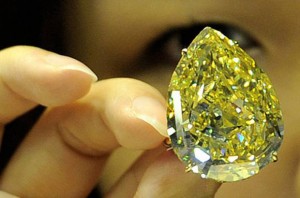
In the last hearing, Chief Justice of Pakistan Justice Iftikhar Muhammad Chaudhry heading a three-member bench hearing the case of copper and gold in Reko Diq, said: “We are Pakistanis and should keep the national interests in view.” Balochistan’s Attorney General Salah-ud-Din Mengal had said the processing license has been given to BHP (now known as BHP Billiton after a 2001 merger), the company earned millions of dollars by floating shares in market; however, Balochistan was not given even a penny.
During proceedings in the apex court, Chief Justice Iftikhar Muhammad Chaudhry said that the matter being of commercial and technical nature should be sorted out by the Balochistan provincial government and experts and the licensees.
According to media there was some mystery about Reko Diq mines. Three licenses are said to have been issued ie EL-5, EL-6, EL-7 and EL-8. Local English daily in its report had said: “What has been found in RL-7 is also a mystery and the foreign company has not revealed anything to anyone about its findings in these areas”.

The apex court in its last hearing had remarked that the technical and commercial matter should be sorted by the Balochistan government. Having that said, the resources in Balochistan can change the destiny of the nation, and people of Balochistan would be the first beneficiaries. Of course, Pakistan will be able to pay back IMF loans, relieve the burden from the common man and safeguard its sovereignty.
—The writer is Lahore-based senior journalist.

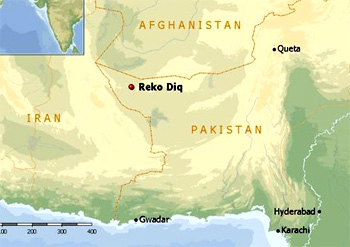
nafisa nice article you know i was the first person to go to court and we won this case for balochistan
Oct16 I will bookmark your blog and have my kids check up here frequently. I?m very certain they will understand lots of new stuff here than anybody else.
Woah this weblog is great i like studying your articles. Stay up the good paintings! You understand, a lot of people are searching around for this info, you can aid them greatly.
You have a great blog here! would you like to make some invite posts on my blog?
I have rather different views.
1. Saindak was awarded to Chinese company, and both parties are benefiting.
2. Thar was refused to Shinhua in 2004, and no one is benefiting from Thar coal .
3. Oil was discovered by Americans in Saudi Arabia. Today, Aramco is solely owned by Saudi Arabia, though the technical staff is totally expatriate. What Saudia is today is all because of oil.
4. Riko Diq was surveyed by PMDC (Pakistan) back in1975 and only minor showings of copper was reported. It was 10 years of advanced geochemical research by BHP (Australia) which lead to the discovery of copper and gold of billions of dollars worth.
5. Negotiate with the foreign companies for as favourable terms as you can. But then, award the contract for heir expertise, capital and know-how of world market
Reko Diq in Supreme Court.
Previous T. C.C. lucrative investment offer was based on mining and production of Copper Concentrate (28% pure Copper ore) which they wanted to carry via pipe line to Gawader port for exporting to smelters and refiners of the developed countries like USA, JAPAN, CHILE etc., where it were to be utilized to produce value added products (e.g. future extensive use of 99.99% pure Copper will be in the manufacturing of various components of hybrid motor vehicles).
Also the above T.C.C scheme of carrying the Concentrate to Gawader port, would have caused severe shortage of drinking and agricultural water in the already arid Balochistan and also unrecoverable environmental problems at Gawader Port which was also the violation of the international environmental law ( any scheme of depriving a nation from basic need of drinking and agricultural water, is challengeable in international court).
Any prospective investment offer should be based on setting the following steps wise integrated Copper mining and manufacturing Plants at mine mouth so that youth of the province could get maximum sustainable jobs and a rational share of the province to get maximum economic benefits of the resources.
– As there is no surface water available in Chagai, Kharan and surroumding areas of Balochistan, so the fresh drinking and agricultural water is obtained from earthen or Karez, underground water channels connected to open well system making the life sustainable. So any misuse of fresh water like scheme proposed by the contractor T.C.C. ,will create a worse draft of fresh water available in the area rapidly, in forth coming years.
– Instead of recycling of fresh water as the reputed mining companies do, T.C.C scheme is to continuously pump the underground fresh water and mixe with the ore to produce 28% Copper concentrate and waste in carrying the slurry bearing copper concentrate via pipe line from Reko Diq to Gawader port, where the ore was to be separated and the polluted water bearing metal tailings and chemicals, will be drained in coastal areas of Gawader port which would result in polluting the coastal waters, destroying marine livelihood resources such as fish and shrimp and the fishing business in forth coming years.
T.C.C. was given license only for geological estimation of Reko-Diq copper-gold reserves which has been completed. While they do not have mining and ore processing rights for which they insisted in the Supreme Court